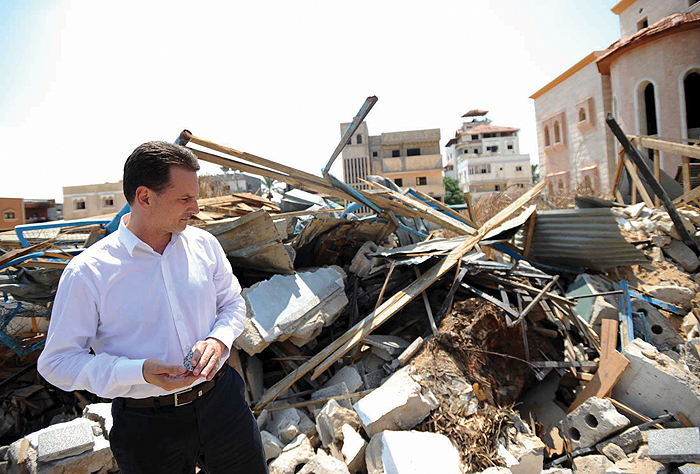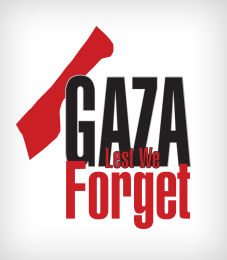
At a press conference held in Gaza on August 17, Pierre Krähenbühl, Commissioner-General for UNRWA, repeated his earlier call to investigate the shelling of UNRWA schools during the attack on Gaza last July. “We were clear in blaming Israel for this act, and this page will not be turned till a full investigation is conducted and justice prevails. We insist on full accountability even if this matter will take time.”
This Week in Palestine (TWIP) met earlier with Pierre Krähenbühl (PK) for his views on the war on Gaza.
TWIP: Unprecedented by an UNRWA Commissioner General, you recently gave speeches at the Security Council and the General Assembly. What prompted that?
PK: After the massive attacks on civilians, particularly the shelling of UNRWA’s Jabalya School, I took that opportunity to condemn the attacks on civilians, and in my speeches, I asked for accountability and an investigation of the Jabalya incident.
TWIP: Mechanism?
PK: Not clear yet.
TWIP: How will you cope the day after?
PK: [sigh] It’s mammoth. Currently, UNRWA gives aid to over 1,000,000 Gazans who have been suffering not only because of the war but also because of a seven-year-old siege. We also give assistance to 200,000 people in our schools and 300,000 in other locations in cooperation with several UN agencies. Remember that the new scholastic year is around the corner. I visited Gaza and saw despair. I also saw first-hand the damage in Beit Hanoun, Khuza’a, Shaja’iyya, Rafah, and other areas. This will require a huge and unhindered effort to rebuild. If the same constraints that existed after the last war remain, it will be very difficult to reconstruct.
TWIP: Any initial thoughts on psychological treatment?
PK: The best we can do at this point is give a sense of normalcy. We are facilitating the efforts of counsellors to work particularly with children. Simple things like playing with children can help in the rehabilitation process. An awful lot needs to be done though.
TWIP: When you were with ICRC (International Committee of the Red Cross), you worked in many countries in crisis, such as Haiti, Peru, Bosnia and Herzegovina, Afghanistan, etc. Can you compare?
PK: Each crisis has its own challenges. This one, however, is particularly challenging.
TWIP: What would be your biggest challenge?
PK: Bringing hope in the middle of it all.
TWIP: Are you hopeful?
PK: As I was inaugurating an UNRWA photo exhibition a few months ago, what caught my attention was that every single photograph had professional Palestinians providing service to a refugee. UNRWA is a key player in the development of human capital. From what I see, given the opportunity, Palestinians can excel. The fact that there is so much potential gives me hope.
TWIP: A last word?
PK: Ninety-eight percent of our employees are Palestinians and, to a large extent, our employees in Gaza are refugees themselves. A word of gratitude and admiration is in order particularly to our Gazan staff who have demonstrated incredible dedication to their people by risking their lives daily to go to work, which also means leaving their own families alone. Unfortunately, we have lost eleven staff members during this war. I would also like to say that we affirm our standing with the Palestinian people who deserve to feel hopeful and be free like all other peoples in the world. One thing is for sure, things cannot go back to where they were before this war.
♦ “Pierre has huge natural authority borne of years of experience as the head of operations at the ICRC. He brings with him a detailed knowledge of international law and a protection reflex, which has proved invaluable in dealing with issues such as the conduct of hostilities and UNRWA’s neutrality. Moreover, Pierre also has a zen-like calm and clarity of vision which has greatly benefitted UNRWA and our beneficiaries amid the fog of war.”
» A member of Pierre Krähenbühl’s management team


